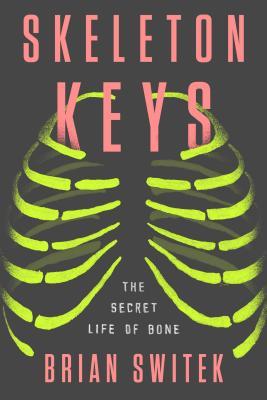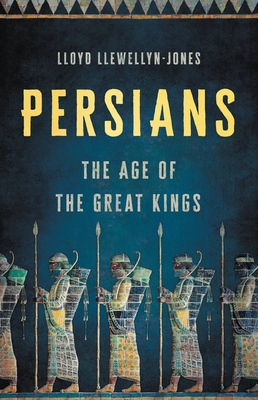
Planetary Systems: A Very Short Introduction (Very Short Introductions)
By: Raymond T. Pierrehumbert
Format: 160 pages, Paperback
Not long ago, the Solar System was the only example of a planetary system - a star and the bodies o…
Want to Read $ 7.99"Heat escapes from small planets more easily than from large planets, because small planets have a greater ratio of surface area (through which heat escapes) to volume (which stores heat and generates it by radioactive decay). A small planet would require a much greater amount of radioactive heat generation, per kilogram of rock, to maintain vigorous lava-producing volcanism. This is basically for the same reason that a mouse needs to consume many more calories per gram of body weight than a human. A typical mouse, weighing 40 grams, consumes 10 kilocalories (sometimes called simply ‘calories’ in everyday usage) per day. Scaled up to the mass of a human, that would amount to 25,000 kilocalories a day—equivalent to 7kg of dry spaghetti."-Raymond T. Pierrehumbert, Planetary Systems: A Very Short Introduction (Very Short Introductions)
"Heat escapes from small planets more easily than from large planets, because small planets have a greater ratio of surface area (through which heat escapes) to volume (which stores heat and generates it by radioactive decay). A small planet would require a much greater amount of radioactive heat generation, per kilogram of rock, to maintain vigorous lava-producing volcanism. This is basically for the same reason that a mouse needs to consume many more calories per gram of body weight than a human. A typical mouse, weighing 40 grams, consumes 10 kilocalories (sometimes called simply ‘calories’ in everyday usage) per day. Scaled up to the mass of a human, that would amount to 25,000 kilocalories a day—equivalent to 7kg of dry spaghetti."-Raymond T. Pierrehumbert, Planetary Systems: A Very Short Introduction (Very Short Introductions)
"It is rather remarkable that the whole apparatus of nucleosynthesis, generation of long-lived radioactive elements, and the chemical constants that determine the freezing point of water and the properties of the silicate weathering reactions have conspired to permit the operation of the silicate weathering thermostat. The ‘anthropic’ principle would state that of all possible Universes, things have worked out this way because a Universe has to have something near these characteristics in order to allow us to be here to notice such things. A less anthropic—and probably more humble—view is that we evolved to take advantage of this particular characteristic of our Universe, and that other forms of life could evolve to make use of other geochemically stabilized habitats."-Raymond T. Pierrehumbert, Planetary Systems: A Very Short Introduction (Very Short Introductions)
"It is rather remarkable that the whole apparatus of nucleosynthesis, generation of long-lived radioactive elements, and the chemical constants that determine the freezing point of water and the properties of the silicate weathering reactions have conspired to permit the operation of the silicate weathering thermostat. The ‘anthropic’ principle would state that of all possible Universes, things have worked out this way because a Universe has to have something near these characteristics in order to allow us to be here to notice such things. A less anthropic—and probably more humble—view is that we evolved to take advantage of this particular characteristic of our Universe, and that other forms of life could evolve to make use of other geochemically stabilized habitats."-Raymond T. Pierrehumbert, Planetary Systems: A Very Short Introduction (Very Short Introductions)
If you liked the science plot in Planetary Systems: A Very Short Introduction (Very Short Introductions) by Raymond T. Pierrehumbert , here is a list of 10 books like this:

1. The Captive / The Fugitive (In Search of Lost Time, #5-6)
By: Marcel Proust , None , Terence Kilmartin , D.J. Enright
Format: 957 pages, Paperback
The Modern Library’s fifth volume of In Search of Lost Time contains both The Captive (1923) and Th… read more
Want to Read $ 14.99Similar categories in Marcel Proust's The Captive / The Fugitive (In Search of Lost Time, #5-6) book and Raymond T. Pierrehumbert's Planetary Systems: A Very Short Introduction (Very Short Introductions)
"...every social class has its own pathology..."-Marcel Proust, The Captive / The Fugitive (In Search of Lost Time, #5-6)
"Let us leave pretty women to men with no imagination."-Marcel Proust, The Captive / The Fugitive (In Search of Lost Time, #5-6)
"Love is space and time made perceptible to the heart."-Marcel Proust, The Captive / The Fugitive (In Search of Lost Time, #5-6)
"There are optical errors in time as there are in space."-Marcel Proust, The Captive / The Fugitive (In Search of Lost Time, #5-6)

2. How Asia Works: Success and Failure in the World's Most Dynamic Region
By: Joe Studwell
Format: 320 pages, Hardcover
How Asia Works( Success and Failure in the World's Most Dynamic Region) Hardcover JoeStudwell G… read more
Want to Read $ 9.99Similar categories in Joe Studwell's How Asia Works: Success and Failure in the World's Most Dynamic Region book and Raymond T. Pierrehumbert's Planetary Systems: A Very Short Introduction (Very Short Introductions)
- nonfiction

3. The Secret Lives of Bats: My Adventures with the World's Most Misunderstood Mammals
By: Merlin Tuttle
Format: None pages, Hardcover
A lifetime of adventures with bats around the world reveals why these special and imperiled creatur… read more
Want to ReadSimilar categories in Merlin Tuttle's The Secret Lives of Bats: My Adventures with the World's Most Misunderstood Mammals book and Raymond T. Pierrehumbert's Planetary Systems: A Very Short Introduction (Very Short Introductions)
- nonfiction
- science
4. The Ethnic Cleansing of Palestine
By: Ilan Pappé
Format: 296 pages, Hardcover
Since the Holocaust, it has been almost impossible to hide large-scale crimes against humanity. In … read more
Want to ReadSimilar categories in Ilan Pappé's The Ethnic Cleansing of Palestine book and Raymond T. Pierrehumbert's Planetary Systems: A Very Short Introduction (Very Short Introductions)
5. Provence A-Z
By: Peter Mayle
Format: 270 pages, Hardcover
An indispensable, richly informative, and always entertaining sourcebook on Provence by the writer … read more
Want to ReadSimilar categories in Peter Mayle's Provence A-Z book and Raymond T. Pierrehumbert's Planetary Systems: A Very Short Introduction (Very Short Introductions)

6. Provenance (Imperial Radch)
By: Ann Leckie
Format: 481 pages, Kindle Edition
Though she knows her brother holds her mother's favor, Ingray is determined to at least be consider… read more
Want to Read $ 9.99Similar categories in Ann Leckie's Provenance (Imperial Radch) book and Raymond T. Pierrehumbert's Planetary Systems: A Very Short Introduction (Very Short Introductions)
- space
"Diplomat does not mean nice,"-Ann Leckie, Provenance (Imperial Radch)
7. The Triumph of Seeds: How Grains, Nuts, Kernels, Pulses, and Pips Conquered the Plant Kingdom and Shaped Human History
By: Thor Hanson
Format: 368 pages, Hardcover
Winner of the 2016 PNBA Book Award A finalist for the 2016 AAAS/Subaru SB&F Prize for Excellence in… read more
Want to ReadSimilar categories in Thor Hanson's The Triumph of Seeds: How Grains, Nuts, Kernels, Pulses, and Pips Conquered the Plant Kingdom and Shaped Human History book and Raymond T. Pierrehumbert's Planetary Systems: A Very Short Introduction (Very Short Introductions)
8. Where Good Ideas Come From: The Natural History of Innovation
By: Steven Johnson
Format: 542 pages,
The printing press, the pencil, the flush toilet, the battery--these are all great ideas. But where… read more
Want to ReadSimilar categories in Steven Johnson's Where Good Ideas Come From: The Natural History of Innovation book and Raymond T. Pierrehumbert's Planetary Systems: A Very Short Introduction (Very Short Introductions)
9. Why Zebras Don't Get Ulcers
By: Robert M. Sapolsky
Format: None pages, Paperback
Renowned primatologist Robert Sapolsky offers a completely revised and updated edition of his most … read more
Want to ReadSimilar categories in Robert M. Sapolsky's Why Zebras Don't Get Ulcers book and Raymond T. Pierrehumbert's Planetary Systems: A Very Short Introduction (Very Short Introductions)
10. The Amazing Adventures of Kavalier & Clay
By: Michael Chabon
Format: None pages,
Joe Kavalier, a young Jewish artist who has also been trained in the art of Houdini-esque escape, h… read more
Want to ReadSimilar categories in Michael Chabon's The Amazing Adventures of Kavalier & Clay book and Raymond T. Pierrehumbert's Planetary Systems: A Very Short Introduction (Very Short Introductions)

11. Determined: A Science of Life without Free Will
By: Robert M. Sapolsky
Format: 528 pages, Hardcover
One of our great behavioral scientists, the bestselling author of Behave, plumbs the depths of the … read more
Want to Read $ 18.99Similar categories in Robert M. Sapolsky's Determined: A Science of Life without Free Will book and Raymond T. Pierrehumbert's Planetary Systems: A Very Short Introduction (Very Short Introductions)
- nonfiction
- science
"I’m being diplomatic. Many readers will know of the “replication crisis"-Robert M. Sapolsky, Determined: A Science of Life without Free Will
"Obviously, imposing these classifications on determinism, free will, and moral responsibility is wildly simplified. A key simplification is pretending that most people have clean “yes"-Robert M. Sapolsky, Determined: A Science of Life without Free Will
"You cannot decide all the sensory stimuli in your environment, your hormone levels this morning, whether something traumatic happened to you in the past, the socioeconomic status of your parents, you…"-Robert M. Sapolsky, Determined: A Science of Life without Free Will

12. Otherlands: A Journey Through Earth's Extinct Worlds
By: Thomas Halliday
Format: 385 pages, Hardcover
A stirring, eye-opening journey into deep time, from the Ice Age to the first appearance of microb… read more
Want to Read $ 12.99Similar categories in Thomas Halliday's Otherlands: A Journey Through Earth's Extinct Worlds book and Raymond T. Pierrehumbert's Planetary Systems: A Very Short Introduction (Very Short Introductions)
- nonfiction
- science
"In their own sweepstake fashion, hippopotamuses will reach Malta, Sicily and Crete over the water, and become dwarfed to tiny forms. In many islands, dwarf elephants will roam. With a single, large n…"-Thomas Halliday, Otherlands: A Journey Through Earth's Extinct Worlds
"To talk of the first humans is to hammer a signpost into an ancient river saying 'no humans beyond this point', no matter the ever flowing stream around it's base. There is nothing essential to human…"-Thomas Halliday, Otherlands: A Journey Through Earth's Extinct Worlds

13. Conspiracy: Why the Rational Believe the Irrational
By: Michael Shermer
Format: 376 pages, Hardcover
Best-selling author Michael Shermer presents an overarching review of conspiracy theories―who belie… read more
Want to Read $ 18.87Similar categories in Michael Shermer's Conspiracy: Why the Rational Believe the Irrational book and Raymond T. Pierrehumbert's Planetary Systems: A Very Short Introduction (Very Short Introductions)
- nonfiction
- science

14. The End of Everything (Astrophysically Speaking)
By: Katie Mack
Format: 226 pages, Hardcover
From one of the most dynamic rising stars in astrophysics, an accessible and eye-opening look—in th… read more
Want to Read $ 13.99Similar categories in Katie Mack's The End of Everything (Astrophysically Speaking) book and Raymond T. Pierrehumbert's Planetary Systems: A Very Short Introduction (Very Short Introductions)
- science
- astronomy
- nonfiction
- space
"It also means that cosmology doesn’t really have a well-defined concept of “now."-Katie Mack, The End of Everything (Astrophysically Speaking)
"We are a species poised between an awareness of our ultimate insignificance and an ability to reach far beyond our mundane lives, into the void, to solve the most fundamental mysteries of the cosmos."-Katie Mack, The End of Everything (Astrophysically Speaking)
"In the meantime, we'll continue on, making new pathc through the woods to see what we might find hiding there. Someday, deep in the unknown wilderness of the distant future, the Sun will expand, the …"-Katie Mack, The End of Everything (Astrophysically Speaking)
"You may have heard that "we are made of stardust" (or "star stuff" if you're Sagan), and this is absolutely true if we measure by mass. All the heavier elements in your body—oxygen, carbon, nitrogen,…"-Katie Mack, The End of Everything (Astrophysically Speaking)

15. The Precipice
By: Toby Ord
Format: 480 pages, Hardcover
This urgent and eye-opening book makes the case that protecting humanity's future is the central ch… read more
Want to Read $ 14.99Similar categories in Toby Ord's The Precipice book and Raymond T. Pierrehumbert's Planetary Systems: A Very Short Introduction (Very Short Introductions)
- nonfiction
- science
"If all goes well, human history is just beginning. Humanity is about two hundred thousand years old. But the Earth will remain habitable for hundreds of millions more—enough time for millions of futu…"-Toby Ord, The Precipice

16. In the Dragon's Shadow: Southeast Asia in the Chinese Century
By: Sebastian Strangio
Format: 360 pages, Hardcover
A timely look at the impact of China’s booming emergence on the countries of Southeast Asia “An ex… read more
Want to Read $ 14.99Similar categories in Sebastian Strangio's In the Dragon's Shadow: Southeast Asia in the Chinese Century book and Raymond T. Pierrehumbert's Planetary Systems: A Very Short Introduction (Very Short Introductions)
- nonfiction

17. Weavers, Scribes, and Kings: A New History of the Ancient Near East
By: Amanda H. Podany
Format: 662 pages, Hardcover
A unique history of the ancient Near East that compellingly presents the life stories of kings, pri… read more
Want to Read $ 20.49Similar categories in Amanda H. Podany's Weavers, Scribes, and Kings: A New History of the Ancient Near East book and Raymond T. Pierrehumbert's Planetary Systems: A Very Short Introduction (Very Short Introductions)
- nonfiction
- science

18. Why We Die: The New Science of Aging and the Quest for Immortality
By: Venki Ramakrishnan
Format: 320 pages, Hardcover
"Utterly fascinating." —Bill Bryson A groundbreaking exploration of the science of why and how we a… read more
Want to Read $ 13.99Similar categories in Venki Ramakrishnan's Why We Die: The New Science of Aging and the Quest for Immortality book and Raymond T. Pierrehumbert's Planetary Systems: A Very Short Introduction (Very Short Introductions)
- nonfiction
- science

19. Skeleton Keys: The Secret Life of Bone
By: Brian Switek
Format: 288 pages, Hardcover
"A provocative and entertaining magical mineral tour through the life and afterlife of bone." --Wal… read more
Want to Read $ 4.99Similar categories in Brian Switek's Skeleton Keys: The Secret Life of Bone book and Raymond T. Pierrehumbert's Planetary Systems: A Very Short Introduction (Very Short Introductions)
- nonfiction
- science

20. Planetary Systems: A Very Short Introduction (Very Short Introductions)
By: Raymond T. Pierrehumbert
Format: 160 pages, Paperback
Not long ago, the Solar System was the only example of a planetary system - a star and the bodies o… read more
Want to Read $ 7.99Similar categories in Raymond T. Pierrehumbert's Planetary Systems: A Very Short Introduction (Very Short Introductions) book and Raymond T. Pierrehumbert's Planetary Systems: A Very Short Introduction (Very Short Introductions)
- science
- astronomy
- nonfiction
- space
"Heat escapes from small planets more easily than from large planets, because small planets have a greater ratio of surface area (through which heat escapes) to volume (which stores heat and generates…"-Raymond T. Pierrehumbert, Planetary Systems: A Very Short Introduction (Very Short Introductions)
"It is rather remarkable that the whole apparatus of nucleosynthesis, generation of long-lived radioactive elements, and the chemical constants that determine the freezing point of water and the prope…"-Raymond T. Pierrehumbert, Planetary Systems: A Very Short Introduction (Very Short Introductions)
"While a star is on the main sequence, it makes only helium. A star leaves the main sequence when it exhausts the supply of available hydrogen in its core. The post-main sequence fate of the star, and…"-Raymond T. Pierrehumbert, Planetary Systems: A Very Short Introduction (Very Short Introductions)
"How many habitable planets are there? From Figure 12 it is evident that there are a handful of planets with instellation in the habitable zone range, and which are also of a size or mass small enough…"-Raymond T. Pierrehumbert, Planetary Systems: A Very Short Introduction (Very Short Introductions)

21. Walking Europe's Edge: Reflections on Portugal
By: Stephen Powell
Format: 172 pages, Kindle Edition
Portugal is both a celebrated and an unknown land. Millions come to enjoy its beaches and the fashi… read more
Want to Read $ 9.99Similar categories in Stephen Powell's Walking Europe's Edge: Reflections on Portugal book and Raymond T. Pierrehumbert's Planetary Systems: A Very Short Introduction (Very Short Introductions)



